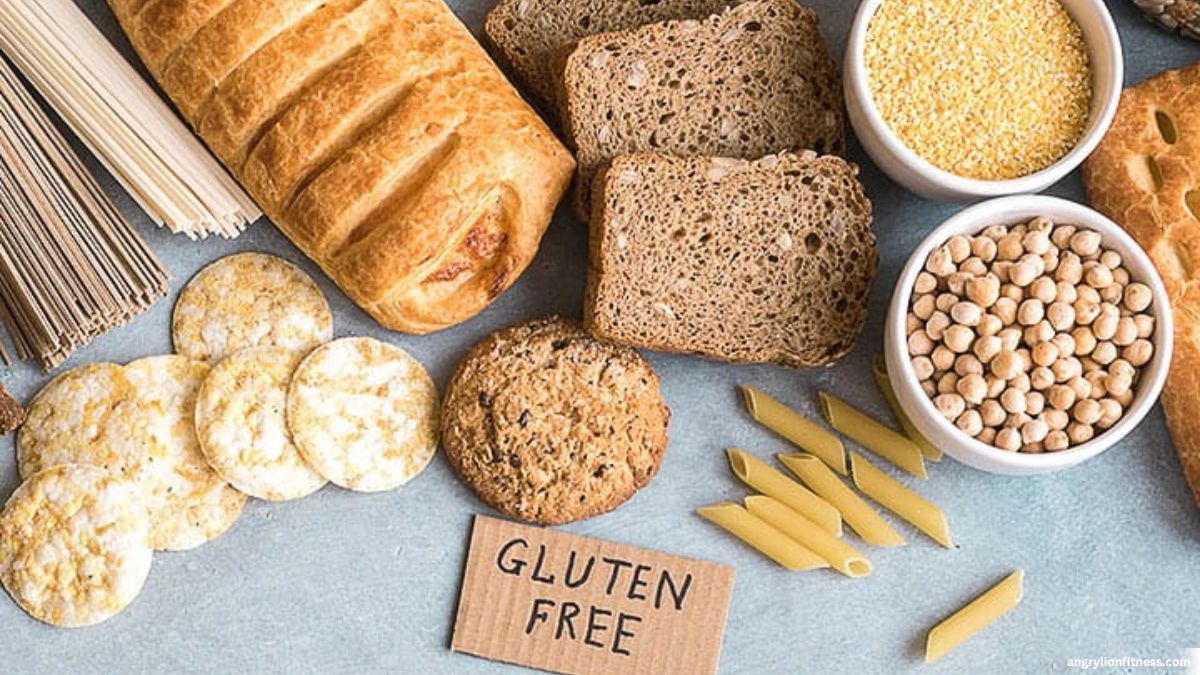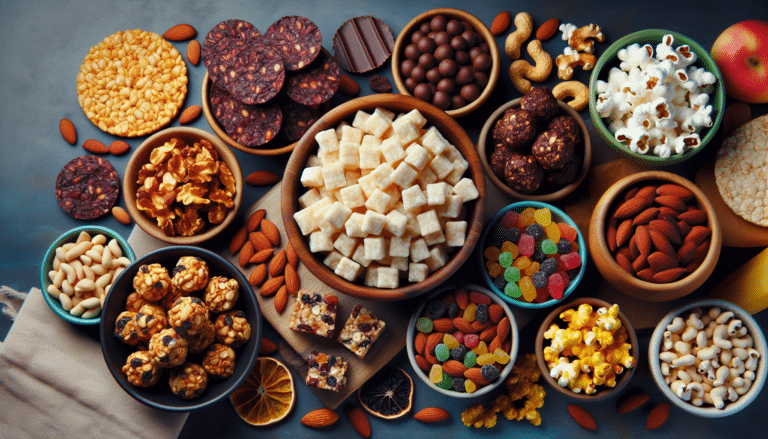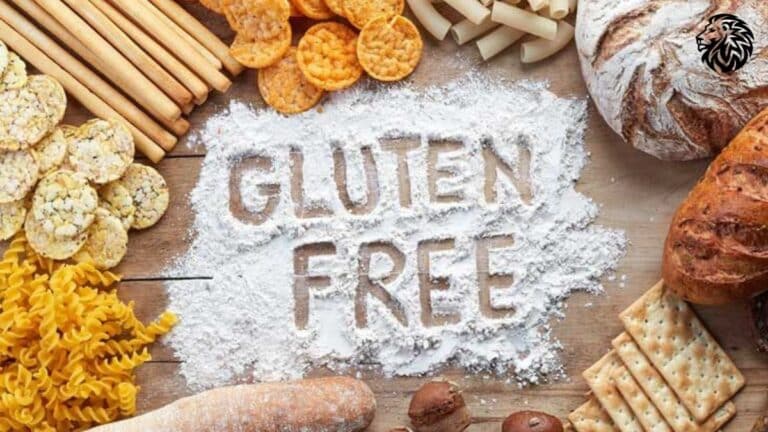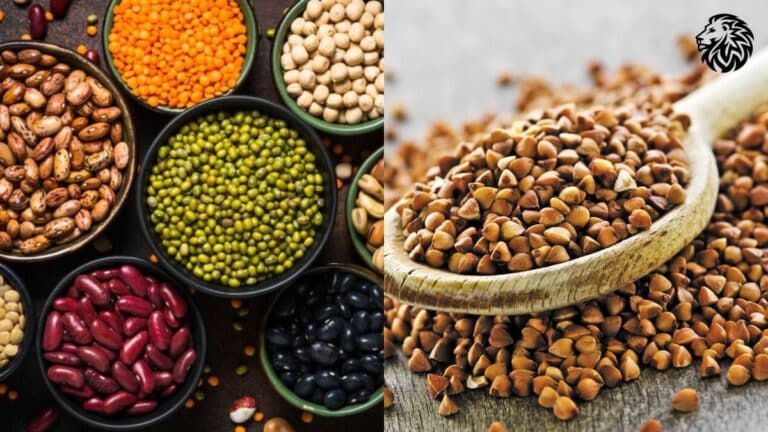A gluten-free diet, once a niche eating plan, has surged in popularity over the past few years. At its core, this diet involves the strict elimination of gluten, a protein found in wheat, barley, rye, and triticale. Gluten acts as a binding agent, giving bread its fluffy texture and pasta its firmness. For those on a gluten-free diet, avoiding these grains and any food containing them is crucial.
There are several key reasons why someone might adopt this diet. The most critical is celiac disease, an autoimmune disorder where the ingestion of gluten leads to damage in the small intestine. For these individuals, a gluten-free diet isn’t a choice but a necessity. Another group includes those with non-celiac gluten sensitivity; they don’t have celiac disease but experience discomfort or adverse reactions when consuming gluten. Lastly, some people choose a gluten-free lifestyle for perceived health benefits or personal preferences, despite not having a medical condition that necessitates it.
While a gluten-free diet can offer significant health benefits for those with celiac disease or gluten sensitivity, it’s not without its pitfalls. Common mistakes can lead to nutritional deficiencies, health complications, or inadvertent gluten consumption. Therefore, it’s crucial to understand these potential errors to maintain a balanced and healthy diet. This article aims to highlight the most common mistakes individuals might make on a gluten-free diet and provide guidance to navigate this lifestyle safely and nutritively.
Mistake #1: Assuming All Gluten-Free Foods Are Healthy
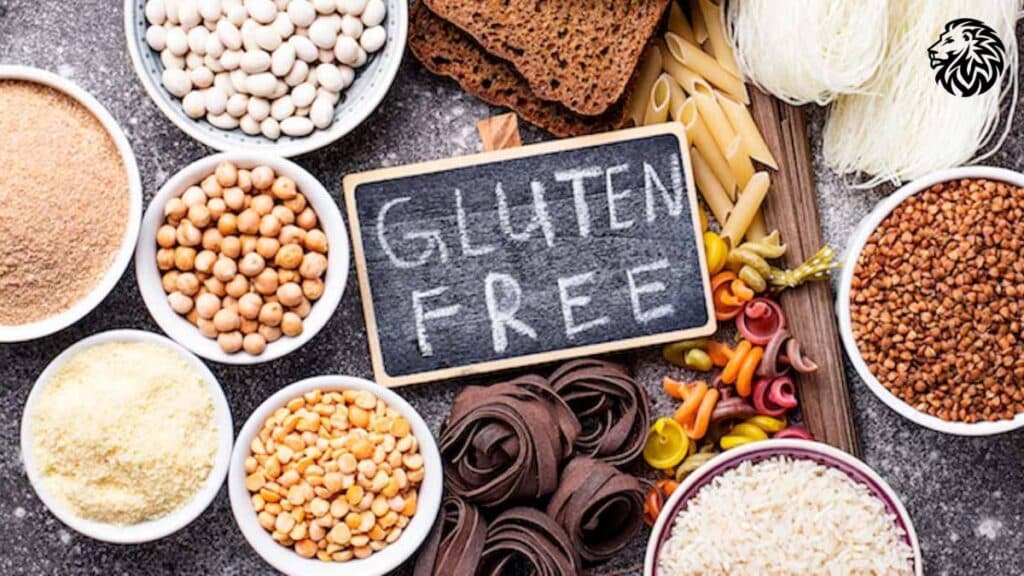
One of the most common and critical mistakes people make when adopting a gluten-free diet is equating “gluten-free” with “healthy.” This misconception can lead to poor dietary choices, as not all gluten-free foods contribute positively to one’s health.
Gluten-free products, especially processed ones, are often perceived as inherently healthier than their gluten-containing counterparts. This belief is a significant misunderstanding. In reality, many gluten-free products are heavily processed and can be high in calories, fats, sugars, and sodium. For instance, gluten-free cookies, cakes, and snacks might be free of gluten, but they can still be packed with unhealthy ingredients and additives. Gluten-free does not automatically mean low in carbohydrates or sugars, and in some cases, these products may have higher sugar content to compensate for changes in flavor and texture when gluten is removed.
Furthermore, manufacturers often use substitute flours and starches, such as potato starch or rice flour, which can result in a lower fiber content and higher glycemic index compared to their gluten-containing equivalents. This can be particularly concerning for individuals with diabetes or those trying to manage their blood sugar levels.
The key is in reading labels meticulously. It’s essential to look beyond the “gluten-free” label and examine the nutritional content of the product. Checking for high levels of sugars, unhealthy fats, and artificial additives is crucial. Additionally, understanding the product’s overall nutritional value, including its fiber, protein, and vitamin content, helps in making informed choices.
Therefore, while gluten-free diets are essential for those with celiac disease or gluten sensitivity, it’s important to recognize that not all gluten-free foods are synonymous with being healthy. Emphasizing whole, minimally processed foods and being vigilant about reading labels can help maintain a balanced and nutritious diet while avoiding gluten.
Mistake #2: Ignoring Cross-Contamination

Cross-contamination refers to the unintentional transfer of gluten to gluten-free food, making it unsafe for those with celiac disease or gluten sensitivity. This can occur in kitchens and dining environments where both gluten-free and gluten-containing foods are prepared or served.
How Cross-Contamination Occurs:
- In the Kitchen: Using the same utensils, cutting boards, or cookware for both gluten-free and gluten-containing foods can lead to cross-contamination. For instance, using the same toaster for regular and gluten-free bread or stirring a gluten-free dish with a spoon that was previously used for a gluten-containing sauce.
- In Restaurants: Kitchens that serve both gluten-free and regular menu items may inadvertently cross-contaminate foods. This can happen through shared cooking surfaces, fryers, or even airborne flour.
- Through Ingredients: Some ingredients may be cross-contaminated during processing or packaging if they are produced in facilities that also handle gluten-containing products.
Tips for Avoiding Cross-Contamination at Home:
- Dedicate Separate Equipment: Use separate toasters, cutting boards, and cooking utensils for gluten-free foods.
- Label Storage: Clearly label gluten-free ingredients and store them separately to avoid mix-ups.
- Clean Thoroughly: Regularly clean countertops, kitchen tools, and appliances to eliminate gluten residues.
- Educate Family Members: Ensure everyone in the household understands the importance of preventing cross-contamination.
Tips for Dining Out:
- Choose Restaurants Wisely: Opt for restaurants with a good understanding of gluten-free requirements or those with specific gluten-free menus.
- Communicate Clearly: Inform the server or chef about your gluten intolerance or celiac disease and ask about their cross-contamination practices.
- Avoid High-Risk Foods: Be cautious with fried foods or buffet items where utensils may be used interchangeably.
Special Considerations for Celiac Disease or Severe Gluten Intolerance:
- Increased Sensitivity: Even tiny amounts of gluten can trigger significant reactions, making vigilance crucial.
- Medical Alertness: Be aware of symptoms that may indicate accidental gluten ingestion and know how to respond.
- Seek Gluten-Free Certification: Look for products and restaurants that have gluten-free certification, indicating stricter adherence to gluten-free standards.
Ignoring cross-contamination can lead to unintentional gluten intake, which can be particularly harmful to individuals with celiac disease or severe gluten intolerance. By being aware of how cross-contamination occurs and taking steps to avoid it, individuals on a gluten-free diet can significantly reduce their risk of exposure to gluten.
Mistake #3: Not Getting Enough Fiber

A common oversight in a gluten-free diet is the inadvertent reduction in dietary fiber intake. Gluten-containing grains like wheat, barley, and rye are significant sources of dietary fiber in many diets. When these are eliminated and not adequately replaced with high-fiber gluten-free alternatives, it can lead to a fiber deficit.
How a Gluten-Free Diet Can Reduce Fiber Intake:
- Limited Whole Grains: Many whole grains that are rich in fiber contain gluten, and common gluten-free alternatives often have lower fiber content.
- Processed Gluten-Free Products: Many processed gluten-free foods are made with refined flours or starches, which are low in fiber.
High-Fiber Gluten-Free Foods:
- Legumes: Beans, lentils, and chickpeas are excellent sources of fiber and are naturally gluten-free.
- Whole Gluten-Free Grains: Quinoa, brown rice, buckwheat, sorghum, and millet are not only gluten-free but also rich in fiber.
- Fruits and Vegetables: Fresh fruits and vegetables, particularly those with edible skins and seeds, are great sources of fiber.
- Nuts and Seeds: Almonds, chia seeds, flaxseeds, and sunflower seeds are high in fiber and can be easily incorporated into a gluten-free diet.
- Psyllium Husk: A fiber supplement that can be added to smoothies or gluten-free baked goods.
Importance of Fiber for Digestive Health and Overall Well-Being:
- Digestive Health: Fiber aids in digestion, prevents constipation, and can help maintain a healthy gut microbiome.
- Blood Sugar Control: High-fiber foods can slow the absorption of sugar, helping to regulate blood sugar levels.
- Heart Health: Adequate fiber intake has been linked to a lower risk of heart disease.
- Weight Management: Fiber-rich foods are more filling, which can help in controlling appetite and managing weight.
Incorporating a variety of high-fiber, gluten-free foods into your diet is essential for maintaining good health. It’s important to make conscious choices to include these foods regularly, ensuring a well-rounded, nutrient-rich gluten-free diet. For those who struggle to get enough fiber through food alone, fiber supplements can be a useful addition, but it’s always best to consult with a healthcare provider before starting any new supplement.
Mistake #4: Overlooking Nutrient Deficiencies

A gluten-free diet, while essential for many, can inadvertently lead to nutrient deficiencies. This typically happens due to the elimination of fortified breads and cereals that are common sources of several key nutrients in a standard diet. Individuals following a gluten-free diet often miss out on adequate amounts of iron, calcium, B vitamins (particularly B12 and folate), and sometimes fiber and vitamin D.
Common Nutrient Deficiencies in a Gluten-Free Diet:
- Iron: Often found in fortified cereals and breads, a staple in many non-gluten-free diets.
- Calcium: Many gluten-free diets lack dairy products, which are a primary source of calcium.
- B Vitamins: B12 and folate, commonly added to wheat-based products, are often missing in gluten-free alternatives.
- Fiber: As discussed earlier, many gluten-free products are made with refined flours that are low in fiber.
- Vitamin D: This can be a concern, especially in gluten-free diets lacking fortified dairy products.
Tips for Incorporating Nutrient-Rich Foods or Supplements:
- Choose Fortified Gluten-Free Products: Opt for gluten-free breads and cereals that are fortified with iron, B vitamins, and other nutrients.
- Include Natural Sources of Iron and B Vitamins: Lean meats, poultry, fish, legumes, nuts, and seeds are great sources. Vegetarian and vegan individuals might need to pay extra attention to these nutrients.
- Incorporate Calcium-Rich Foods: Dairy products, if tolerated, or alternatives like almond milk, rice milk, and soy milk, fortified with calcium, can be good options. Leafy greens, like kale and broccoli, also provide calcium.
- Consider Vitamin Supplements: In some cases, especially where dietary options are limited, supplements can help fill the nutritional gaps. Vitamin B12 supplements are particularly useful for those on a strict gluten-free and vegetarian or vegan diet.
Advice on Consulting with a Healthcare Professional or Dietitian:
- Personalized Guidance: A dietitian or nutritionist can provide personalized dietary advice, ensuring that all nutritional needs are met.
- Monitoring Health: Regular check-ups with a healthcare professional can help monitor nutrient levels and overall health, adjusting dietary needs as necessary.
- Supplement Safety: Before starting any supplements, it’s crucial to consult with a healthcare professional, as some supplements can interact with medications or may not be necessary.
In summary, while managing a gluten-free diet, it’s vital to be aware of potential nutrient deficiencies and take proactive steps to address them. This includes choosing the right foods, considering supplementation if needed, and seeking professional advice to ensure a well-balanced and healthy diet.
Mistake #5: Falling for Marketing Gimmicks
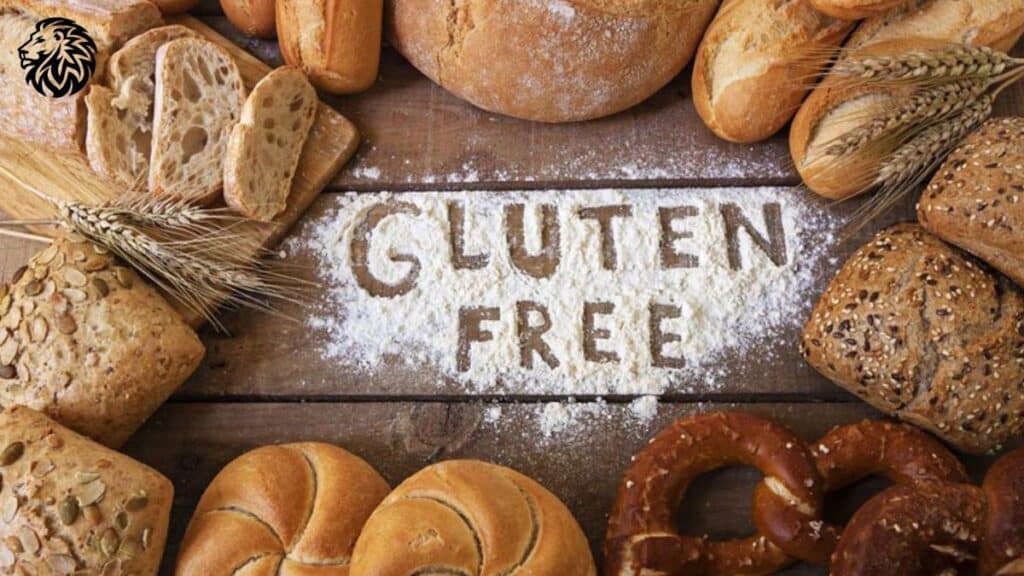
The growing popularity of gluten-free diets has led to an influx of gluten-free products in the market. However, not all of these products are as healthy as their marketing might suggest. It’s essential to be cautious and not fall for marketing gimmicks that can mislead consumers.
How Marketing Can Mislead:
- Health Halo Effect: Many products are labeled as “gluten-free” in a way that implies they are inherently healthier than similar products containing gluten. This can be misleading, as gluten-free does not automatically equate to being low in sugar, fats, or calories.
- Misleading Claims: Some products may boast being gluten-free while ignoring other unhealthy aspects, such as high sugar content, artificial additives, or lack of essential nutrients.
- Overemphasis on Gluten-Free: Marketing often highlights the gluten-free aspect while overlooking the overall nutritional profile of the product, leading consumers to overlook other ingredients that may not be beneficial to their health.
Making Informed Choices:
- Read Ingredient Lists: Always read the ingredients list to understand what you’re consuming. Look for products with whole, recognizable ingredients.
- Check Nutritional Information: Evaluate the nutritional content, paying attention to sugar, fat, sodium, and fiber content. This is crucial for a balanced diet.
- Beware of Processed Foods: Just because a processed food is labeled gluten-free doesn’t mean it’s a healthy choice. Many processed gluten-free foods can be high in calories and low in nutrients.
Focusing on Whole, Minimally Processed Foods:
- Natural Gluten-Free Foods: Fruits, vegetables, lean meats, fish, beans, and legumes are naturally gluten-free and devoid of misleading marketing.
- Whole Gluten-Free Grains: Opt for whole grains like quinoa, brown rice, and buckwheat, which are nutritious and naturally gluten-free.
- Home Cooking: Preparing meals at home can give you more control over what you eat and help avoid the pitfalls of marketing gimmicks.
In essence, the key to a healthy gluten-free diet is to be an informed consumer. This means looking beyond marketing claims and focusing on the actual nutritional value of foods. By emphasizing whole, minimally processed foods and being vigilant about reading labels, you can make healthier choices that align with your dietary needs and overall health goals.
Mistake #6: Not Consulting a Healthcare Professional
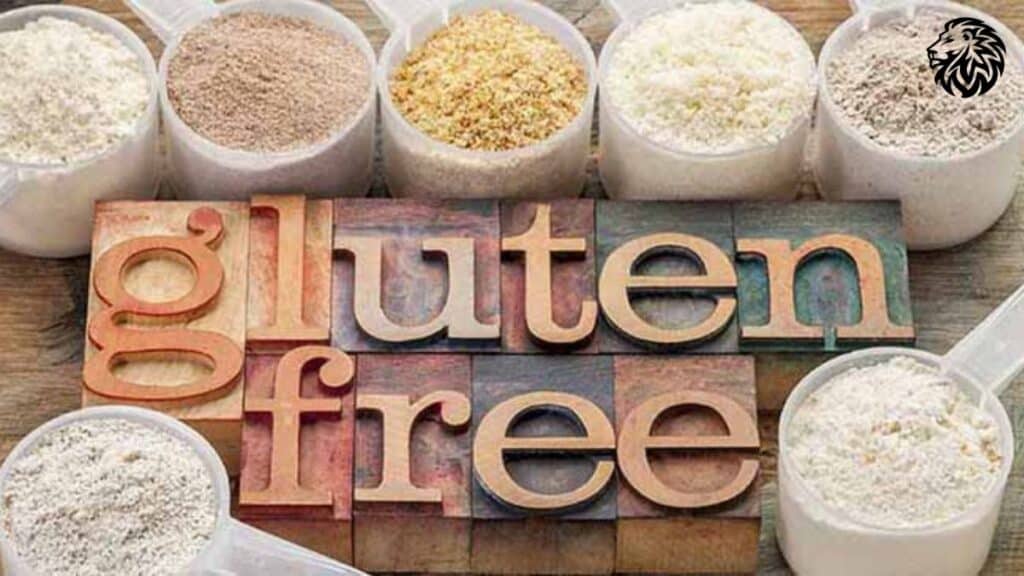
One of the significant missteps in managing a gluten-free diet is failing to seek guidance from healthcare professionals. This is especially crucial for individuals with celiac disease or other medical conditions that necessitate a gluten-free lifestyle.
Importance of Professional Guidance for Celiac Disease:
- Accurate Diagnosis: Self-diagnosing gluten intolerance or celiac disease can lead to incorrect treatment. A healthcare professional can provide a proper diagnosis through tests and evaluations.
- Tailored Dietary Advice: Each person’s nutritional needs and health conditions are unique. A healthcare professional can offer personalized dietary recommendations, ensuring that nutritional deficiencies are addressed.
- Monitoring Health: Regular check-ups and monitoring are crucial, particularly for celiac disease, to ensure the condition is being managed effectively and to check for potential complications.
Role of Dietitians or Nutritionists:
- Creating a Balanced Diet: Dietitians or nutritionists specialized in gluten-free diets can help in formulating meal plans that are both gluten-free and nutritionally complete.
- Educating on Food Choices: They can provide education on reading food labels, understanding hidden sources of gluten, and making informed food choices.
- Addressing Nutritional Deficiencies: They can identify and help correct any nutritional deficiencies, suggesting dietary adjustments or supplements as needed.
Risks of Self-Diagnosing Gluten-Related Disorders:
- Missing Other Health Issues: Symptoms attributed to gluten sensitivity might be signs of other underlying health problems. Without a proper diagnosis, these issues might go untreated.
- Nutritional Imbalances: Without professional guidance, individuals might adopt a gluten-free diet that lacks essential nutrients, leading to health problems over time.
- Psychological Impact: Incorrectly assuming a need for a strict gluten-free diet can lead to unnecessary stress and anxiety around food choices.
In conclusion, consulting with healthcare professionals is crucial when considering a gluten-free diet, particularly for those with suspected or confirmed celiac disease. Their expertise ensures not only the accurate diagnosis and management of gluten-related disorders but also helps in maintaining overall health and well-being through a balanced diet. Self-diagnosis and self-management, without professional input, can lead to more harm than good.
Mistake #7: Neglecting Social and Emotional Impacts
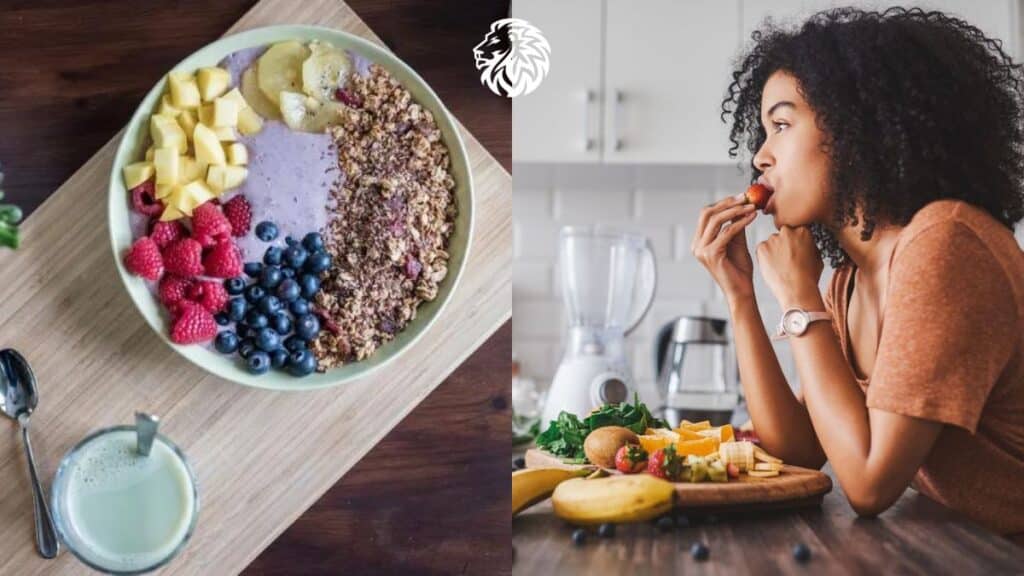
Adopting a strict gluten-free diet can have significant social and emotional implications. Many people overlook these aspects, focusing solely on the dietary changes. However, the social challenges and emotional impacts are just as crucial to address for a successful and sustainable gluten-free lifestyle.
Social Challenges of a Gluten-Free Diet:
- Dining Out: Finding suitable menu options at restaurants can be challenging, and there’s often a fear of cross-contamination.
- Social Gatherings: Events like parties or family gatherings can become stressful if food options are limited or if there’s a lack of understanding from others.
- Traveling: Finding gluten-free options while traveling, especially in foreign countries, can be difficult and anxiety-inducing.
Tips for Handling Social Situations, Travel, and Dining Out:
- Communicate Dietary Needs: Don’t hesitate to inform hosts or restaurant staff about your dietary restrictions. Clear communication can prevent misunderstandings and ensure a safer dining experience.
- Plan Ahead: Research restaurants and menus ahead of time. When traveling, consider staying in places with kitchen facilities to prepare your meals.
- Bring Snacks: Carry gluten-free snacks for times when suitable options might not be available.
- Educate Friends and Family: Help those close to you understand your dietary needs. This can make social gatherings more comfortable and accommodating.
- Be Assertive, Yet Flexible: While it’s important to be firm about your dietary needs, also try to be adaptable within safe boundaries.
Encouragement to Seek Support from Communities or Groups:
- Join Support Groups: Many communities and online platforms have support groups for individuals on a gluten-free diet. These groups offer a space to share experiences, tips, and emotional support.
- Engage in Online Forums: Online forums and social media groups can be a rich source of information and support from others who understand the challenges of a gluten-free diet.
- Participate in Local Events: Some communities have events or workshops focused on gluten-free living, which can be a great way to learn and connect with others.
The emotional and social aspects of a gluten-free diet are often as challenging as the dietary changes themselves. Acknowledging and addressing these challenges is key to maintaining not only a healthy diet but also a healthy and fulfilling lifestyle. Seeking support and employing practical strategies to manage social situations can greatly ease the transition and ongoing management of a gluten-free diet.
Conclusion
Adopting a gluten-free lifestyle, whether due to medical necessity or personal choice, comes with its own set of challenges. As we have explored, common mistakes such as assuming all gluten-free foods are healthy, neglecting potential nutrient deficiencies, and overlooking the social and emotional impacts can significantly affect one’s health and quality of life. Each of these mistakes underscores the importance of being mindful and informed when navigating a gluten-free diet.
It’s crucial to remember that a gluten-free diet isn’t inherently healthier unless it is well-planned and balanced. This involves being vigilant about food choices, understanding food labels, and being aware of the nutritional content of gluten-free products. Consulting healthcare professionals, particularly in cases of celiac disease or severe gluten sensitivity, is essential for obtaining accurate diagnosis and guidance. Additionally, paying attention to the emotional and social aspects of a gluten-free diet is just as important as the physical health considerations.
Maintaining a balanced, healthy gluten-free diet requires continuous learning and adaptation. As the food industry evolves and more gluten-free options become available, staying informed about new products and their nutritional aspects is important. Engaging with support groups and communities can provide valuable resources, shared experiences, and emotional support, making the journey easier and more enjoyable.
In conclusion, while a gluten-free diet can be challenging, it also presents an opportunity to discover new foods and ways of eating that can contribute to a healthier lifestyle. With mindful practices, informed choices, and a supportive community, individuals on a gluten-free diet can enjoy a diverse, nutritious, and satisfying diet while effectively managing their health needs.
Frequently Asked Questions About Gluten-Free Diets
- Q: Can a gluten-free diet benefit people without celiac disease or gluten sensitivity?
- A: While primarily beneficial for individuals with celiac disease or gluten sensitivity, some people may find a gluten-free diet helps with digestive issues, inflammation, and energy levels. However, it’s important to ensure the diet is balanced and not lacking in essential nutrients. Always consult a healthcare professional before making significant dietary changes.
- Q: How can I ensure I’m getting enough whole grains on a gluten-free diet?
- A: Incorporate gluten-free whole grains like quinoa, buckwheat, brown rice, millet, and amaranth into your diet. These grains are nutritious and can help maintain a balanced diet. Experiment with different grains to find your favorites and add variety to your meals.
- Q: Is it safe to eat oats on a gluten-free diet?
- A: Pure oats are gluten-free and safe for most people with celiac disease. However, oats are often contaminated with gluten during processing. Look for oats that are specifically labeled as gluten-free to ensure they haven’t been contaminated.
- Q: Can gluten be hidden in non-food products?
- A: Yes, gluten can be present in non-food products like cosmetics, skincare items, medications, and supplements. It’s important to check labels and possibly contact manufacturers to ensure these products are gluten-free, especially for those with celiac disease.
- Q: What are some tips for eating out safely on a gluten-free diet?
- A: Research restaurants in advance to find ones with gluten-free options. Communicate your dietary needs clearly to the staff. Be cautious with cross-contamination, especially in places where gluten-free and gluten-containing foods are prepared in the same area. Consider using apps or websites that review and recommend gluten-free-friendly restaurants.
